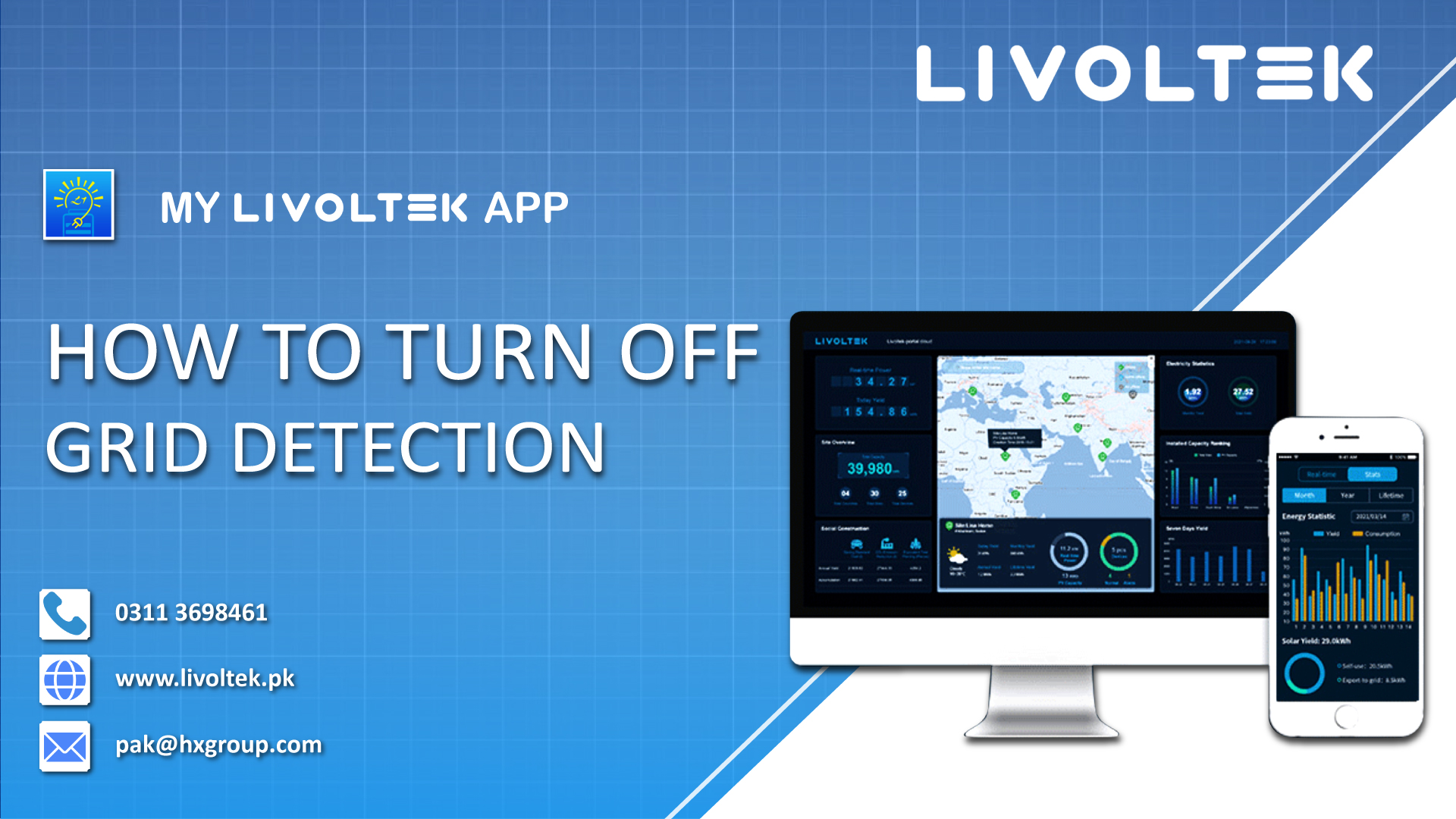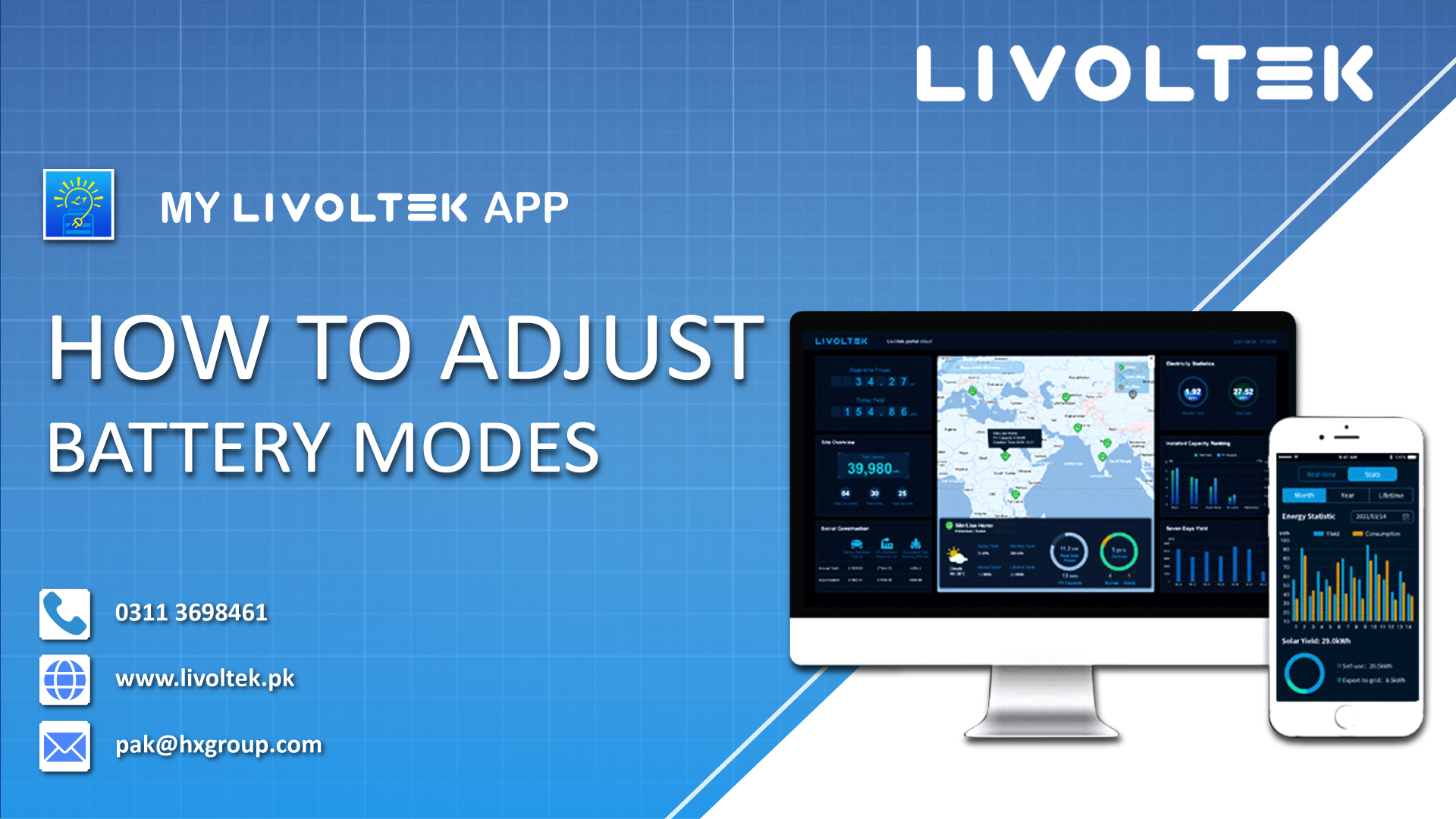Solar power has emerged as a promising source of electricity. When it comes to harnessing solar energy, one crucial component is the solar inverter. Choosing the right type of solar inverter is essential for maximizing the benefits of your solar power system. But when it comes to choosing off-grid vs. on-grid solar inverters, people get confused.
In this article, our experts at Livoltek will explore these two popular options: off-grid & on-grid solar inverters. We will delve into their characteristics, advantages, and considerations to help you make an informed decision.
Why Select Solar Inverter Off-Grid vs. On-Grid in Pakistan?
When considering solar power systems in Pakistan, evaluating the suitability of both off-grid inverters and on-grid solar inverters is essential. This will help you make an informed decision, ensuring you choose the most suitable solar inverter option for your needs in Pakistan.
Here are some of the prominent features of off-grid and on-grid solar inverters.
- Off-grid solar inverters are ideal for remote areas in Pakistan where grid connectivity is limited or non-existent, providing electricity independence.
- With frequent power outages in some regions, an off-grid system offers a reliable power supply by incorporating battery storage for uninterrupted electricity during blackouts.
- Off-grid systems eliminate monthly utility bills and reduce reliance on expensive diesel generators, offering long-term cost savings.
- On-grid inverters enable homeowners and businesses to earn credits by feeding excess electricity back into the grid through net metering programs, reducing electricity bills.
- On-grid systems contribute to a greener future by offsetting carbon emissions through renewable energy generation, aligning with Pakistan’s sustainability goals.
Solar Inverter Benefits – Off Grid vs. On Grid
When it comes to selecting a solar inverter off-grid vs. on-grid, our expert solar energy suppliers look into some factors, including the availability of grid connectivity, energy needs, budget constraints, and reliability of the grid infrastructure to determine whether a solar inverter off-grid or on-grid is a better choice. Also, the advantages and considerations of these grid systems are considered.
Off-Grid Solar Inverters
Off-grid solar inverters, also known as standalone inverters, are designed for independent operating systems. These inverters convert the direct current (DC) solar panels generate into alternating current (AC) for powering appliances and devices. Off-grid inverters are used in remote areas or locations with limited access to the utility grid.
Advantages of Off-Grid Solar Inverters
- These solar inverters at our company LivolTek allow users to become self-sufficient, producing and consuming electricity without relying on the grid.
- They are ideal for remote locations, cabins, or off-grid installations, providing electricity where traditional grid connections are not feasible, like in rural Pakistan.
- Off-grid systems often include battery banks to store excess energy, ensuring a reliable power supply during cloudy days or power outages.
Considerations for Off-Grid Solar Inverters
- Off-grid systems typically require more equipment, including batteries and charge controllers, making them initially more expensive than on-grid systems.
- Proper sizing is crucial to meet energy demands, considering daily consumption, peak load, and battery capacity.
- Off-grid systems may require regular maintenance of batteries and other components to ensure optimal performance.
On-Grid Solar Inverters
On-grid solar inverters, also known as grid-tied inverters, are connected to the utility grid. They convert DC power from solar panels into AC power, which can be consumed by household appliances or fed back into the grid.
Advantages of On-Grid Solar Inverters
- Excess electricity generated can be returned to the grid, earning credits or reducing future energy bills through net metering programs.
- On-grid systems eliminate the need for costly battery banks, reducing the upfront investment and maintenance requirements.
- On-grid systems can draw electricity from the grid during low sunlight or high energy demand, ensuring a continuous power supply.
Considerations for On-Grid Solar Inverters
- On-grid systems rely on the availability of the utility grid, making them unsuitable for areas prone to power outages or unstable grid infrastructure.
- These systems can only provide backup power during grid outages with battery storage.
- Grid-tied systems may require compliance with local regulations, permits, and interconnection agreements.
These arguments will help you decide which system to choose, solar inverter off grid vs. on grid. But if you still need clarification, then contact us today at +92 311 369 8461.
If you want to buy solar inverters, visit our official website and explore the world of clean and green energy.
Below are three questions explaining the difference between solar inverters off-grid and on-grid.
Frequently Asked Questions
Which is better on-grid or off-grid solar?
Determining solar inverter off-grid vs. on-grid depends on individual circumstances. On-grid solar offers cost-effectiveness and grid backup, while off-grid solar provides energy independence and reliability in remote areas.
What is the advantage of the off-grid inverter?
The off-grid inverter allows users to generate and consume their electricity without relying on the grid and the ability to provide backup power during grid outages.
How long do off-grid inverters last?
The lifespan of off-grid inverters can vary depending on factors such as quality, usage patterns, and maintenance. On average, well-maintained off-grid inverters can last between 10 to 15 years.



